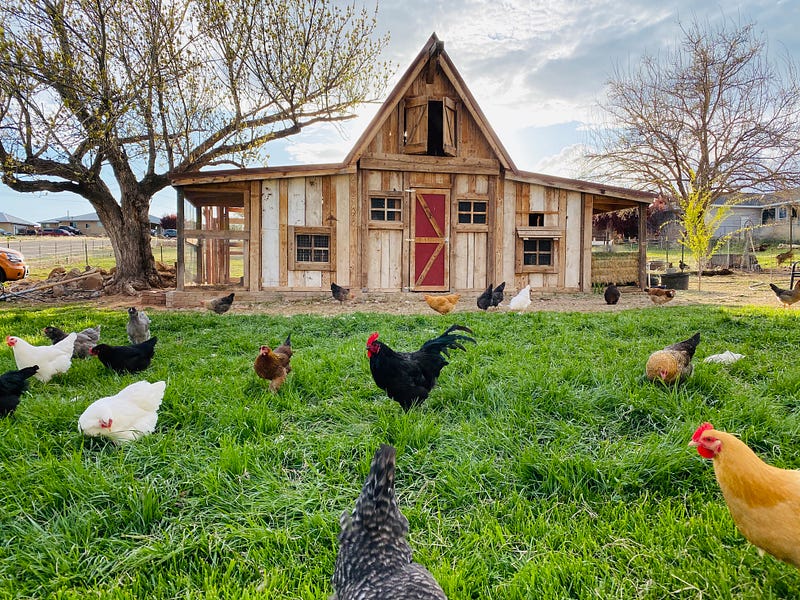Lab-Grown Meat: A Step Toward a Sustainable Future?
Written on
Chapter 1: The Dawn of Lab-Grown Meat
The concept of lab-grown meat is no longer just a figment of science fiction; it is becoming a reality. Recently, the USDA (United States Department of Agriculture) granted approval for three U.S. companies to produce and sell lab-cultured chicken. This approval comes after the FDA's earlier endorsement of this innovative meat technology.
Lab-grown meat, often referred to as cultivated or cultured meat, is genuine meat generated from animal cells. While the idea of producing meat in a laboratory might seem unsettling, the USDA has coined the term “cell-cultivated chicken” for marketing purposes, and this product is expected to appear in restaurants across America soon.
The journey of lab-grown meat began in 2013, when a research team from the University of Maastricht in the Netherlands unveiled the first lab-grown burger made from stem cells. This initial creation, however, came with a hefty price tag of over $300,000, which hindered its success. Yet, significant progress in the field over the past decade has made lab-grown meat a feasible commercial option.
> “This innovation raises ethical questions about animal welfare and sustainability in food production.”
Section 1.1: A Personal Perspective on Lab-Grown Meat
Upon hearing the news of the USDA's approval, my husband immediately inquired if I would consider eating lab-grown chicken. Currently, my answer remains no; I prefer to abstain from consuming any form of animal flesh, including lab-cultured options. Nonetheless, I support the exploration of lab-grown meat as a viable alternative.
Humans have a deep-seated affinity for meat, influenced not only by its flavor but also by cultural and psychological factors. Therefore, the prospect of an alternative that significantly mitigates animal suffering resonates strongly with me.
That said, I am uncertain about the treatment of the animals from which the stem cells are sourced. Ideally, I envision a sanctuary-like environment where chickens lead fulfilling lives. However, the reality may involve confinement in cramped laboratory conditions, akin to factory farms. Considering that over 100 million chickens are slaughtered daily worldwide, I would still advocate for lab-grown meat, even if the chickens do not enjoy the ideal living conditions I hope for. This staggering statistic is accurate—over 8 billion chickens have been killed in the U.S. alone this year. Transitioning from factory farming to lab-grown meat could significantly decrease the overall number of animals suffering.

Will the chickens providing the stem cells be treated humanely? One can only hope! | Photo by Dani Millington on Unsplash
Section 1.2: Environmental and Health Benefits
Almost half of the Earth's habitable land is currently dedicated to agriculture, with a significant portion allocated for livestock farming. Lab-grown meat not only alleviates animal suffering but could also release substantial land for rewilding or for cultivating crops intended for human consumption.
Another significant advantage of lab-grown meat is the reduced reliance on antibiotics. This shift could help mitigate the alarming rise of antibiotic-resistant bacteria, which poses a substantial threat to global health and food security. In factory farming, controlling antibiotic use is challenging, as it facilitates the spread of disease and the evolution of viruses, endangering human health. It is important to note that lab-grown meat does not carry the same risks associated with zoonotic diseases.
While the sustainability of lab-grown meat is still a topic of discussion, it has the potential to be more environmentally friendly, including lower carbon emissions compared to traditional farming methods. However, the scalability of this process remains to be seen.
Even though I, as a vegan, do not intend to consume lab-grown meat, I am excited to witness this new initiative take root and potentially replace factory farming. This development could represent a significant victory for animal welfare and the environment.
Now, the pressing question is: would you consider trying lab-grown meat?
Chapter 2: The Connection Between Our Food Choices and Ethics
In the video "I Tried Cultured Meat: Is It The Future of Food?", we explore the implications of lab-grown meat on our diets and ethics.
The video "What Does the Future of Lab Grown Meat Look Like? | Serving Up Science" delves into the future of lab-grown meat and its potential impact on food production and sustainability.